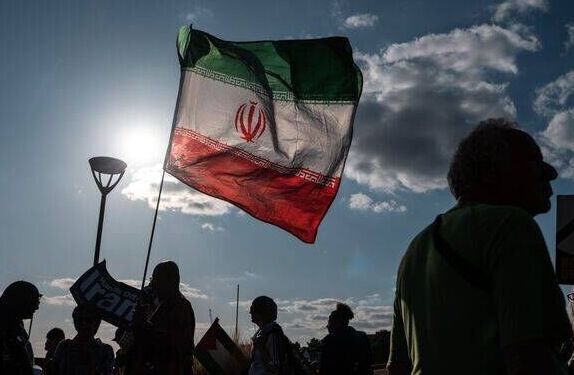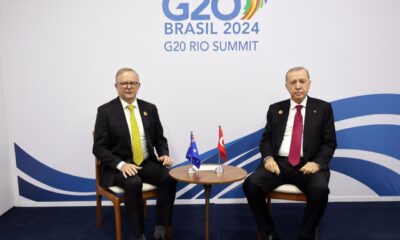World
Iranian Man Sentenced to Eight Years for Beheading Wife

A court in Iran has sentenced Sajjad Heydari to just eight years in prison for the brutal murder of his 17-year-old wife, Mona Heydari. This lenient sentence has sparked outrage given the horrific nature of the crime, which occurred in February 2022 in Ahvaz, the capital of Khuzestan Province. Mona was murdered shortly after her father, Javid, persuaded her to return to Iran from Turkey, where she had fled to escape an abusive marriage.
According to court proceedings, Sajjad and his brother Heydar attacked Mona outside her family home, with Sajjad later parading her severed head in public. The sentence was notably reduced after Mona’s parents reportedly chose to “forgive” him rather than pursue Iran’s Islamic law of retribution. Court spokesperson Massud Setayeshi confirmed that Heydari received a seven-and-a-half-year sentence for murder, and an additional eight months for intentional assault. His brother was sentenced to 45 months for complicity in the crime.
The details of Mona’s life reveal a tragic story of early marriage and domestic abuse. Married at the age of 12, she bore a son when she was just 14. Reports indicate that she had previously managed to escape her husband and sought refuge in Turkey, but was ultimately convinced by her father to return. Javid claimed that the marriage was a good match for his daughter, stating in court that the violence she endured was typical in such relationships.
In a statement, he remarked, “It’s true, there was fighting between them, and sometimes there was violence… These fights between husband and wife are completely normal.” Javid also acknowledged that, in hindsight, Mona may have been too young to marry but maintained that the marriage was sanctioned by law, as they had received a certificate confirming her physical maturity.
The circumstances surrounding Mona’s murder are part of a troubling pattern of gender-based violence in Iran. The Women’s Committee of the National Council of Resistance of Iran (NCRI) reported that Mona was coerced into marriage at a young age and endured domestic abuse. They highlighted the lack of legal protection for women, stating that the Iranian regime’s failure to criminalize honour killings has resulted in a significant increase in such cases.
A 2019 report by the state-run Sharq newspaper indicated that Iran sees an annual average of between 375 and 450 honour killings, with higher rates reported in regions like Khuzestan and Kurdistan. Activists argue that these murders are often justified within a patriarchal framework, with the law treating women as subordinate to men.
The chilling nature of this case has drawn attention to the systemic issues facing women in Iran. Video evidence, which has not been publicly released due to its graphic content, reportedly shows the husband smiling as he displays his wife’s severed head.
The recent sentencing has reignited discussions about the culture of violence against women in Iran. Activists emphasize that the persistent issue of honour killings is deeply rooted in a misogynistic society where women are often viewed as property. They argue for urgent reforms to protect women and ensure accountability for such heinous acts.
As the world watches, the call for justice for victims like Mona Heydari continues, highlighting the need for significant changes in laws and societal attitudes towards gender-based violence in Iran.
-

 World3 days ago
World3 days agoCoronation Street’s Shocking Murder Twist Reveals Family Secrets
-

 Entertainment4 months ago
Entertainment4 months agoKate Garraway Sells £2 Million Home Amid Financial Struggles
-

 Entertainment3 months ago
Entertainment3 months agoAnn Ming Reflects on ITV’s ‘I Fought the Law’ Drama
-

 Health3 months ago
Health3 months agoKatie Price Faces New Health Concerns After Cancer Symptoms Resurface
-

 Entertainment3 weeks ago
Entertainment3 weeks agoCoronation Street Fans React as Todd Faces Heartbreaking Choice
-

 World4 weeks ago
World4 weeks agoBailey Announces Heartbreaking Split from Rebecca After Reunion
-

 Entertainment6 days ago
Entertainment6 days agoTwo Stars Evicted from I’m A Celebrity Just Days Before Finale
-

 World6 days ago
World6 days agoKevin Sinfield Exceeds Fundraising Goal Ahead of Final Marathons
-

 Entertainment3 months ago
Entertainment3 months agoCoronation Street’s Carl Webster Faces Trouble with New Affairs
-

 Entertainment3 months ago
Entertainment3 months agoWhere is Tinder Swindler Simon Leviev? Latest Updates Revealed
-

 Entertainment4 months ago
Entertainment4 months agoMarkiplier Addresses AI Controversy During Livestream Response
-

 Science2 months ago
Science2 months agoBrian Cox Addresses Claims of Alien Probe in 3I/ATLAS Discovery





















